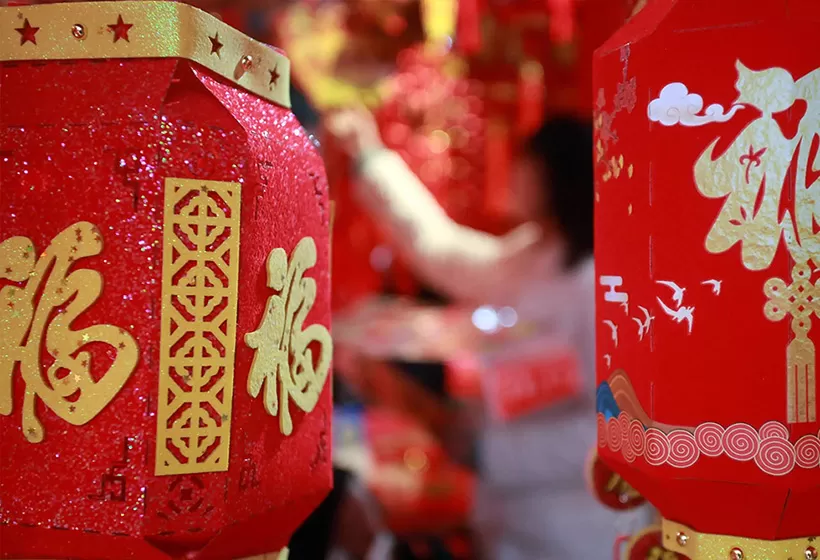忙忙碌碌地筹备 欢欢喜喜地过年

Chinese New Year, also called the Spring Festival, is the most important and widely celebrated festival in China. It can also be called “Guonian,” which means the passing of the old year to the new year. There are some common practices of Chinese New Year.
House Cleaning
On the twenty-third or twenty-fourth day of the twelfth lunar month, people have a tradition called “sweeping the dust” or “sweeping the house.” On this day, everyone cleans their homes thoroughly. They wash all kinds of tools, wash bedding and curtains, sweep the courtyard, and brush off dirt and cobwebs (蜘蛛网). There is a happy atmosphere as people celebrate, clean, and get ready for the New Year. The reason behind this tradition is that the word for “Dust” sounds like the word for “Chen” in Chinese. So, by cleaning before the New Year, people symbolically remove the old and bring forth the new. The goal is to sweep away all bad luck and pray for good luck in the coming year.
Prepare New Year’s goods
Different parts of the country have their own special New Year traditions, which can be very different from the north to south. Even though these customs vary from place to place, almost everyone in the country prepares New Year’s goods and gives New Year’s gifts on New Year’s Eve. New Year’s goods include things like food, clothes, decorations, candy, tea, meat, drinks, wine, etc. Buying and giving these items is an important part of celebrating the Spring Festival for Chinese people.
New Year’s Meat
On the twenty-sixth day of the twelfth lunar month, people traditionally prepare meat for the New Year by killing pigs and cutting the meat. The reason why “cutting the meat of the new year” was included in the New Year’s Ballad is that, in traditional farming society where economy are underdeveloped, people could only afford to eat meat during the annual festival, hence it was called “the meat of the new year”. Nowadays, many rural families no longer raise pigs and instead buy meat from the market.
原创编写 版权所有 侵权必究! 每日更新 个性化阅读 英语飙升!